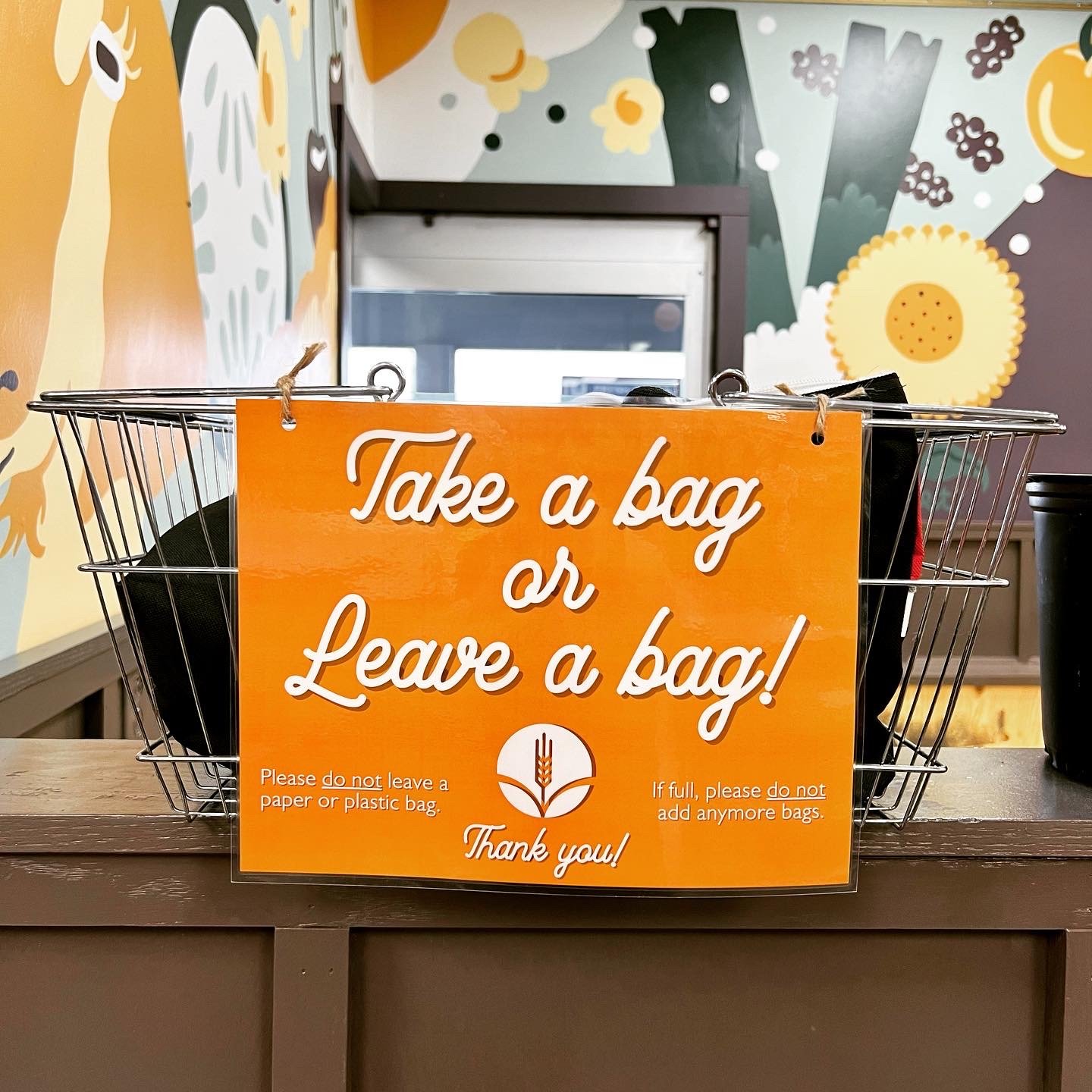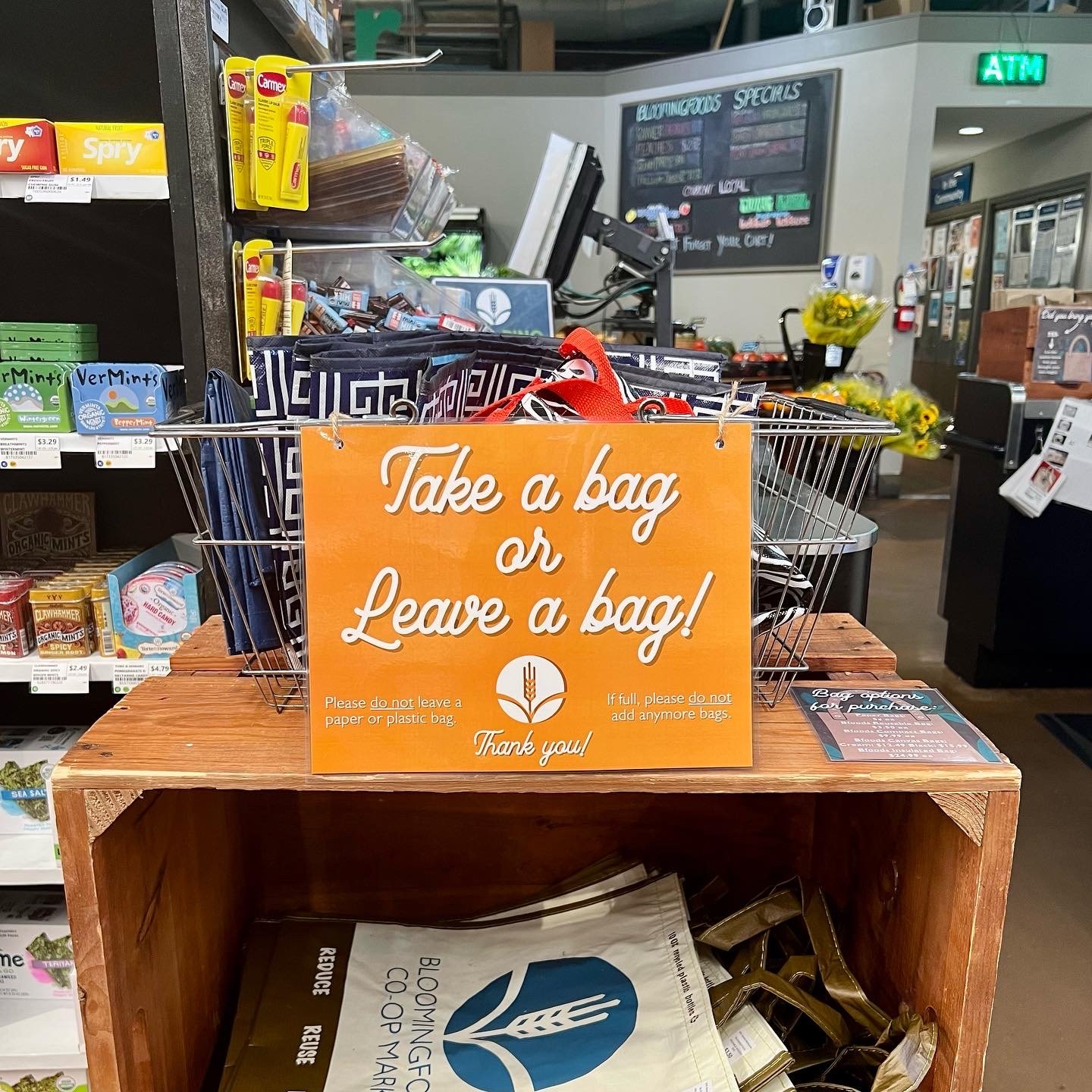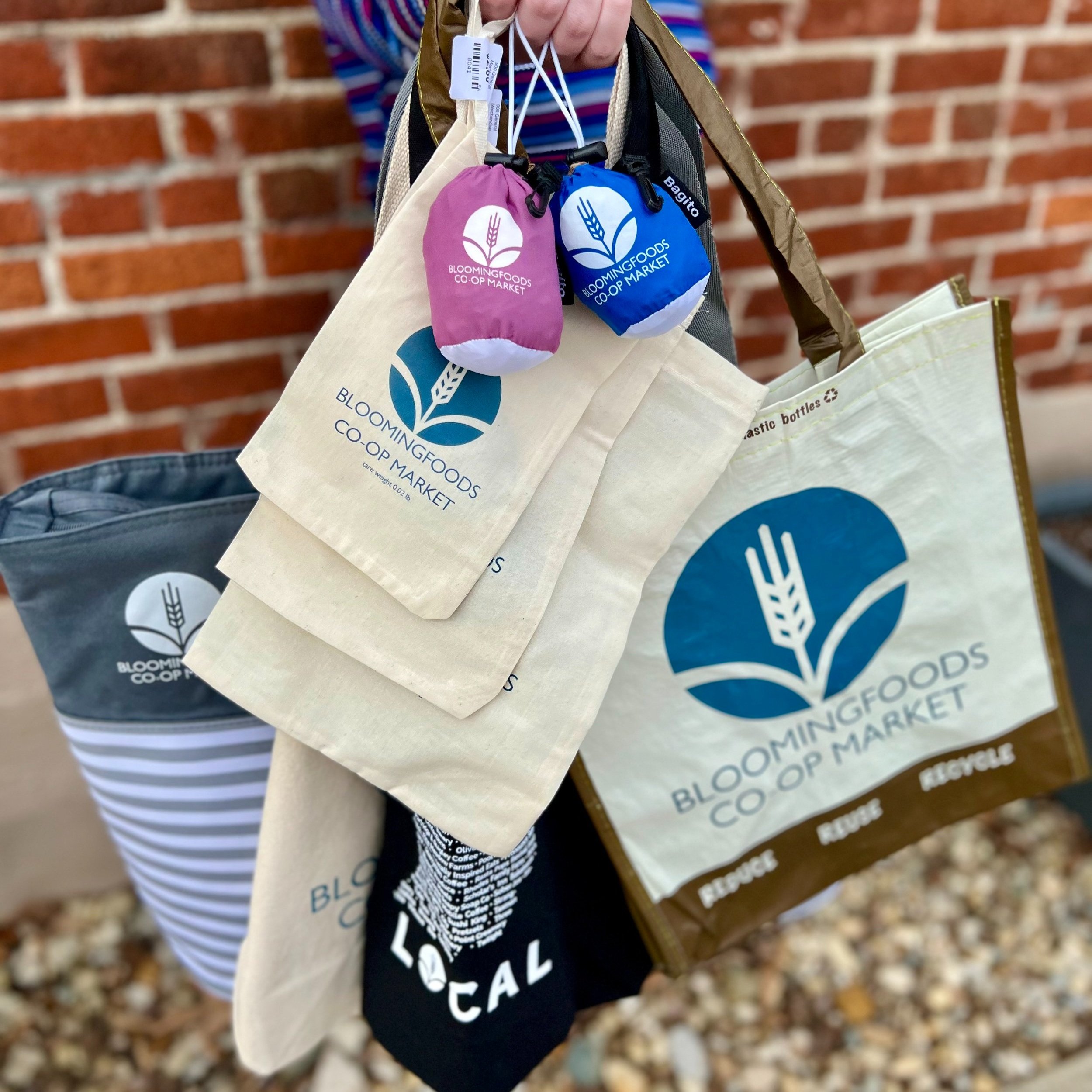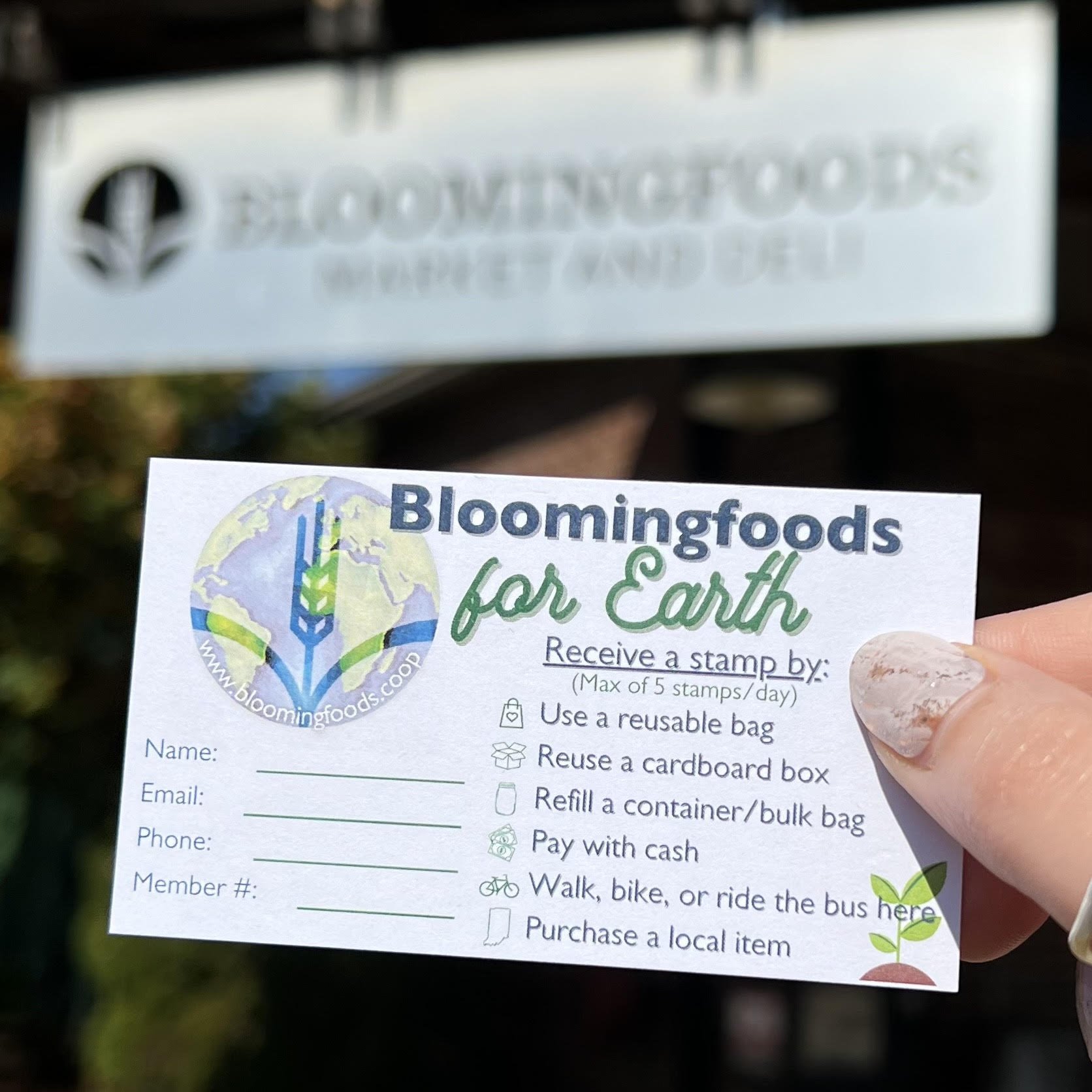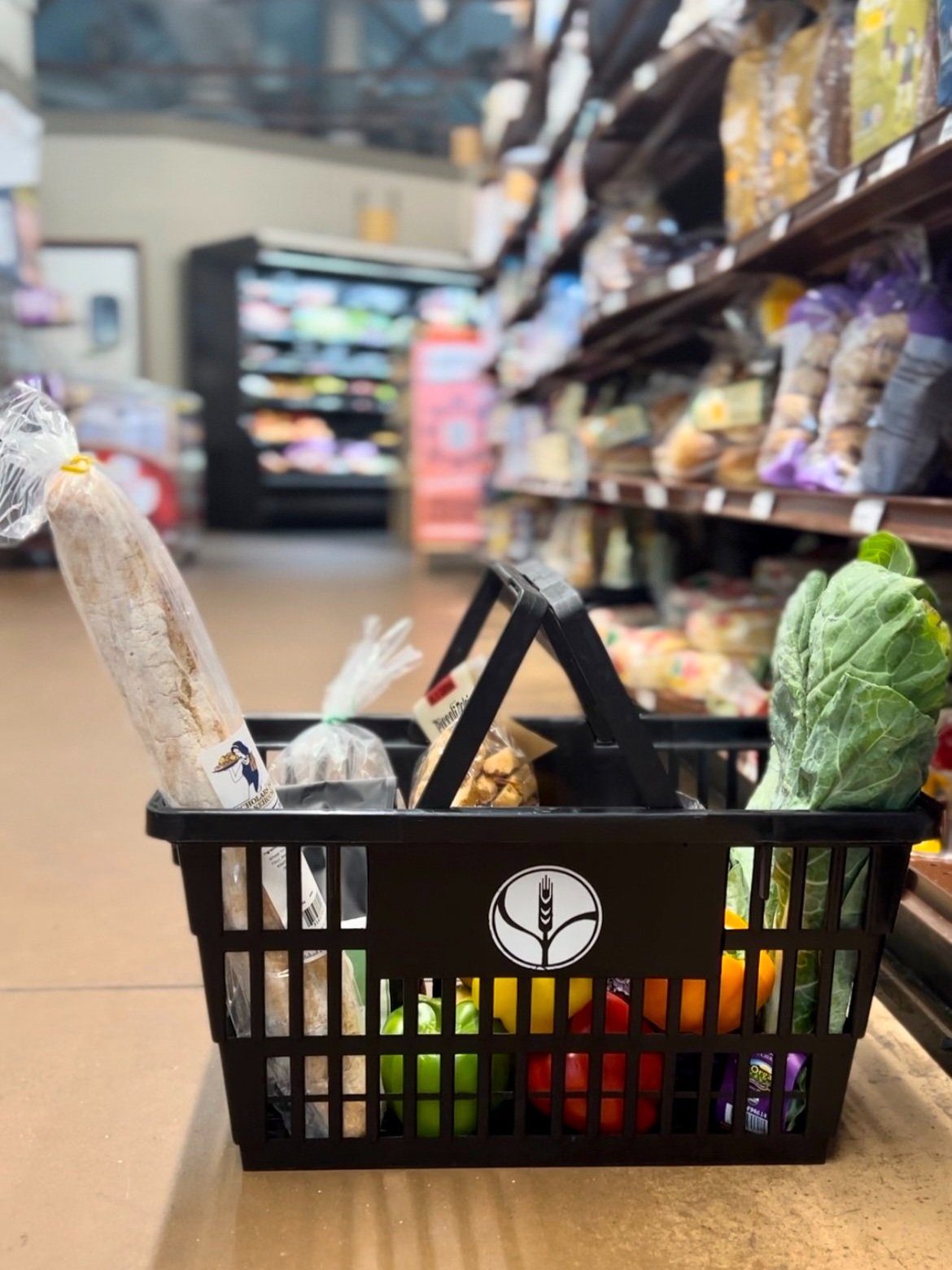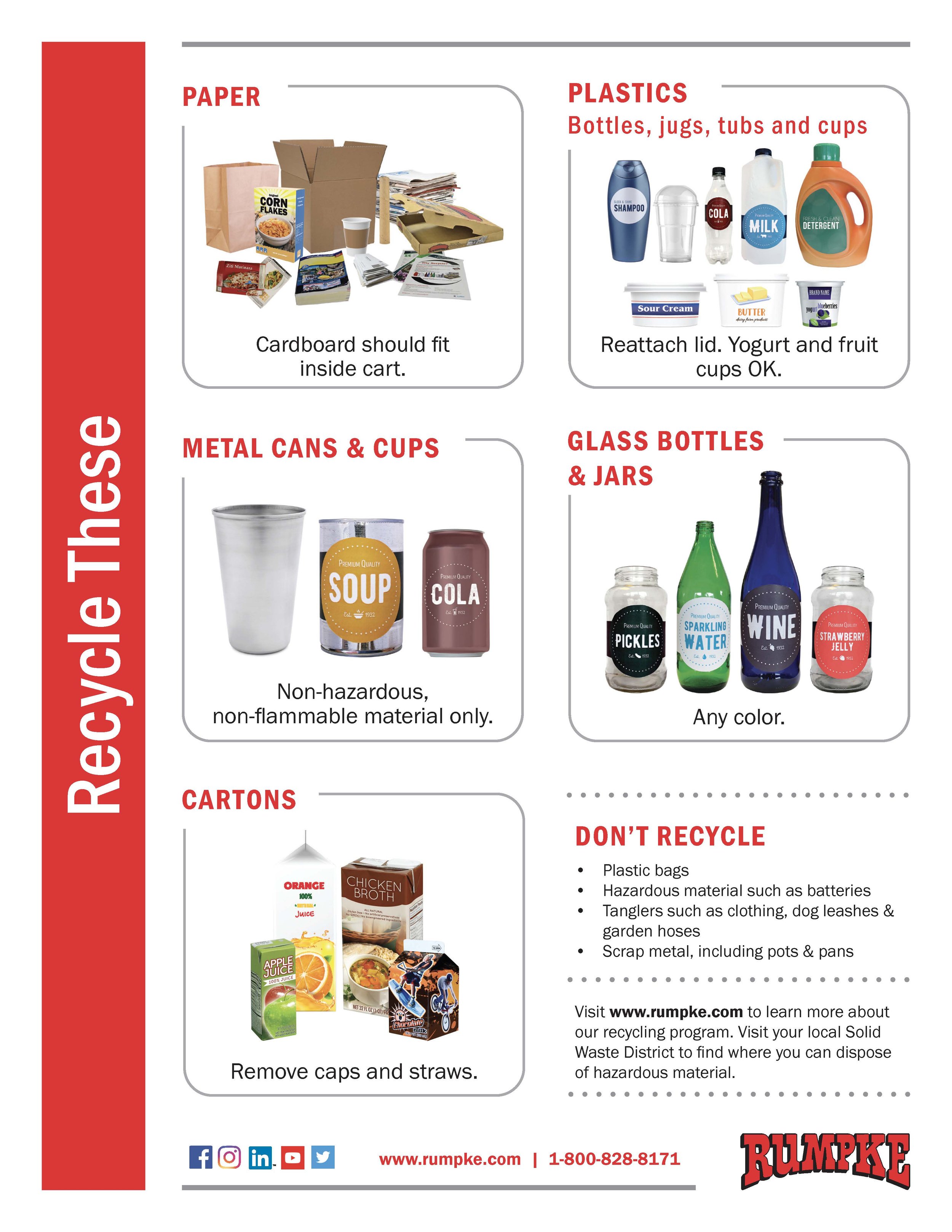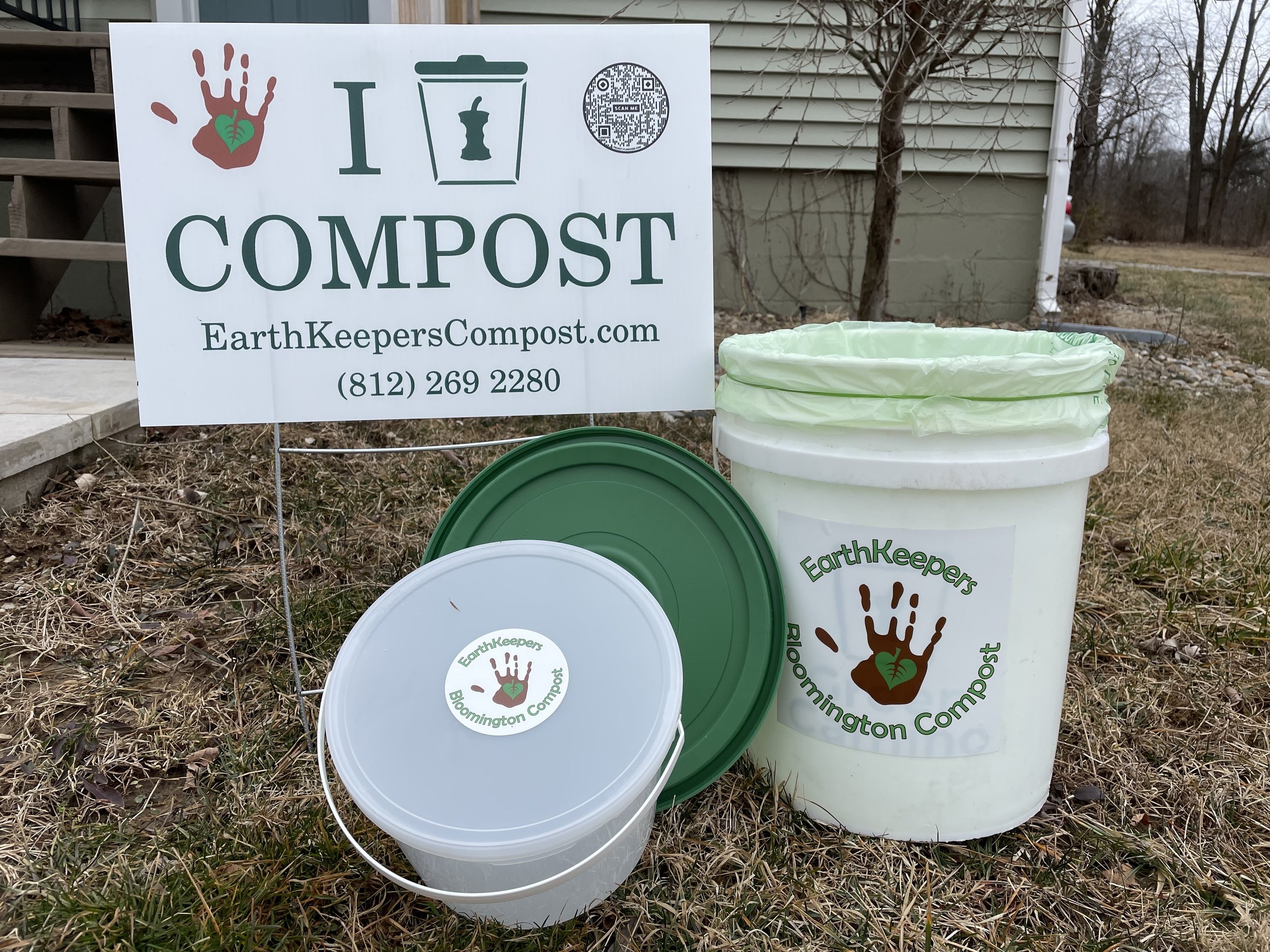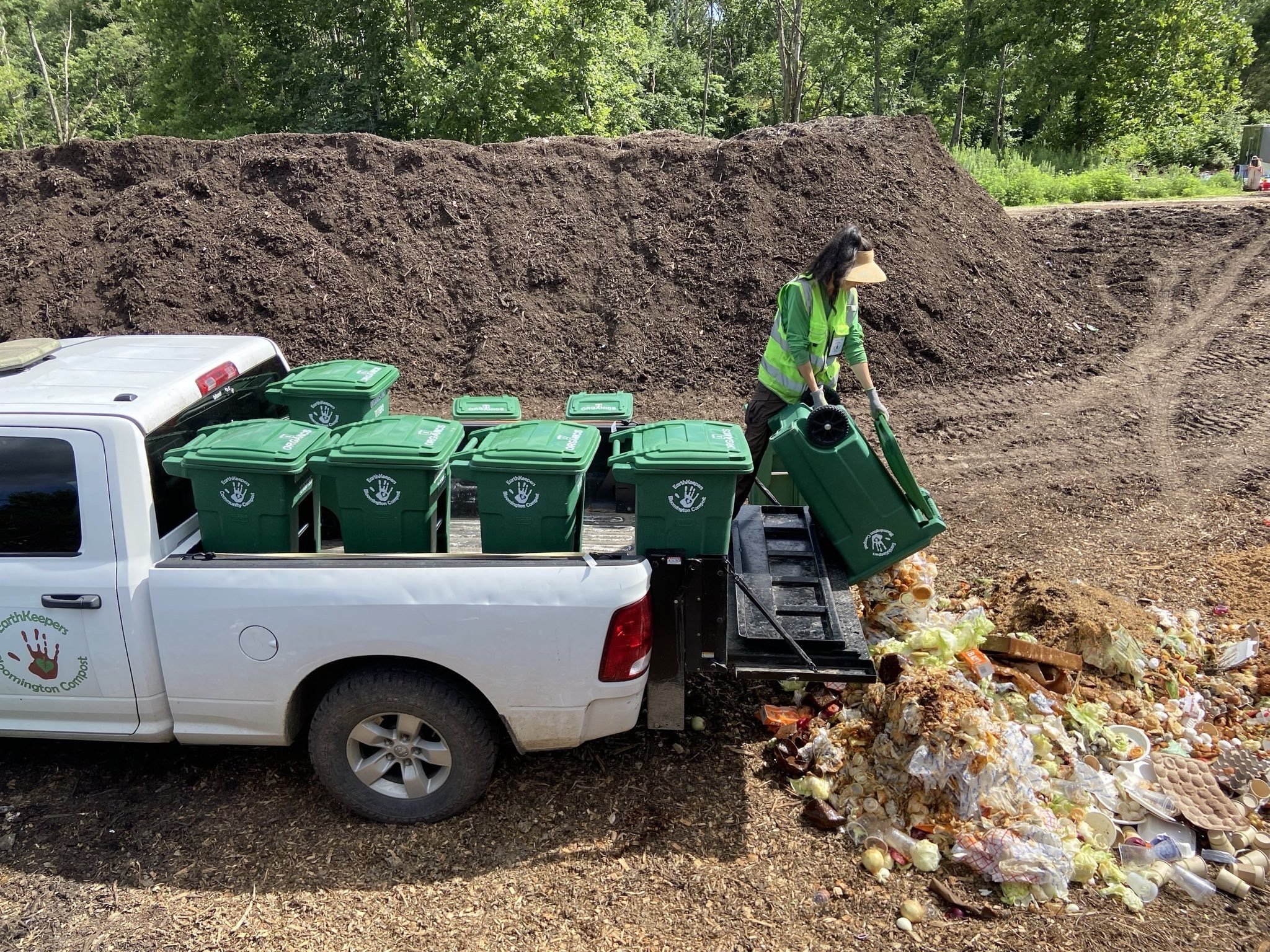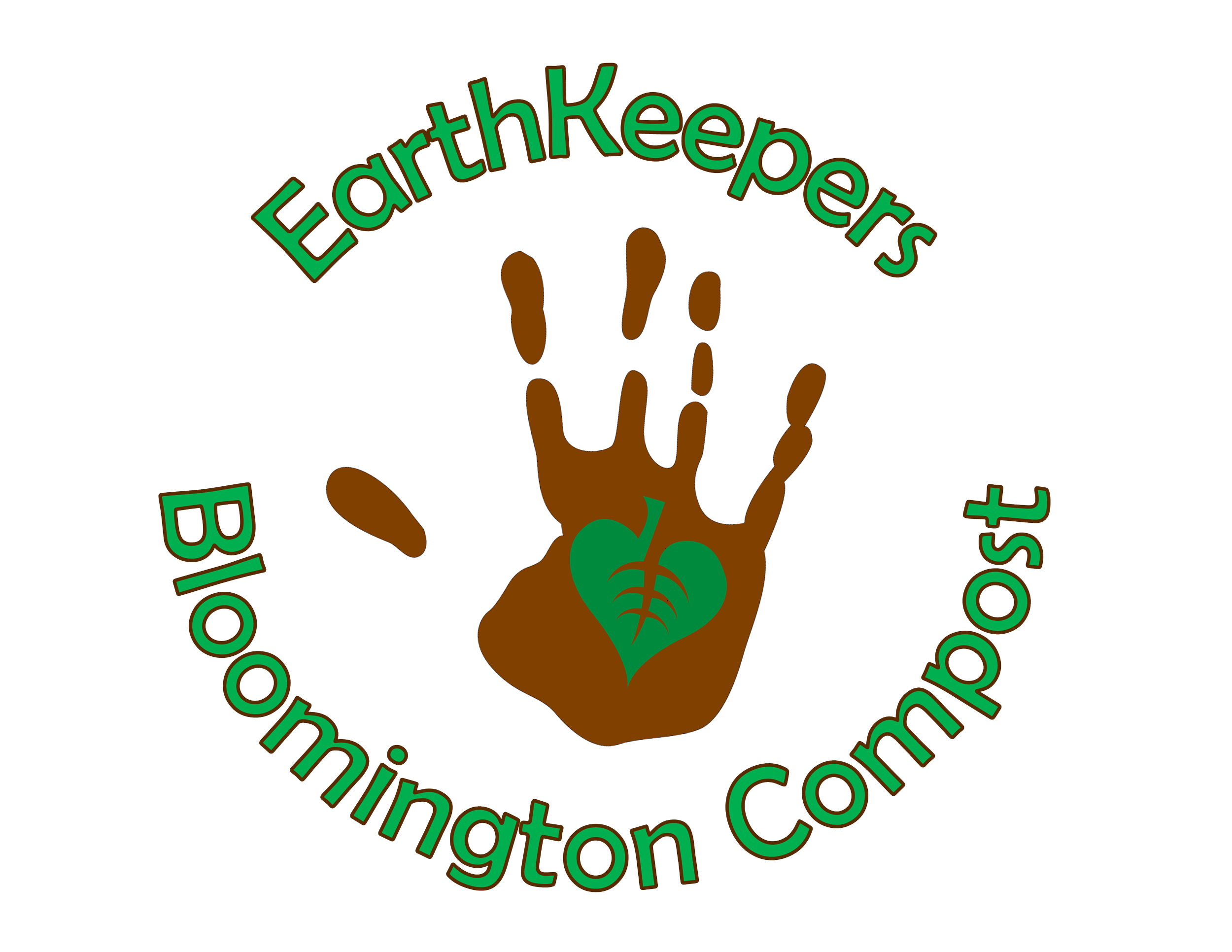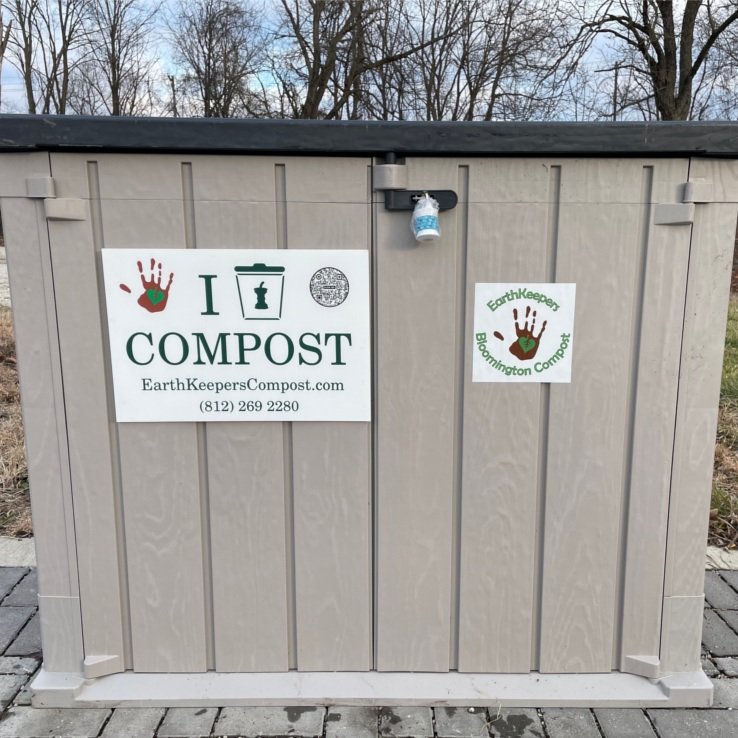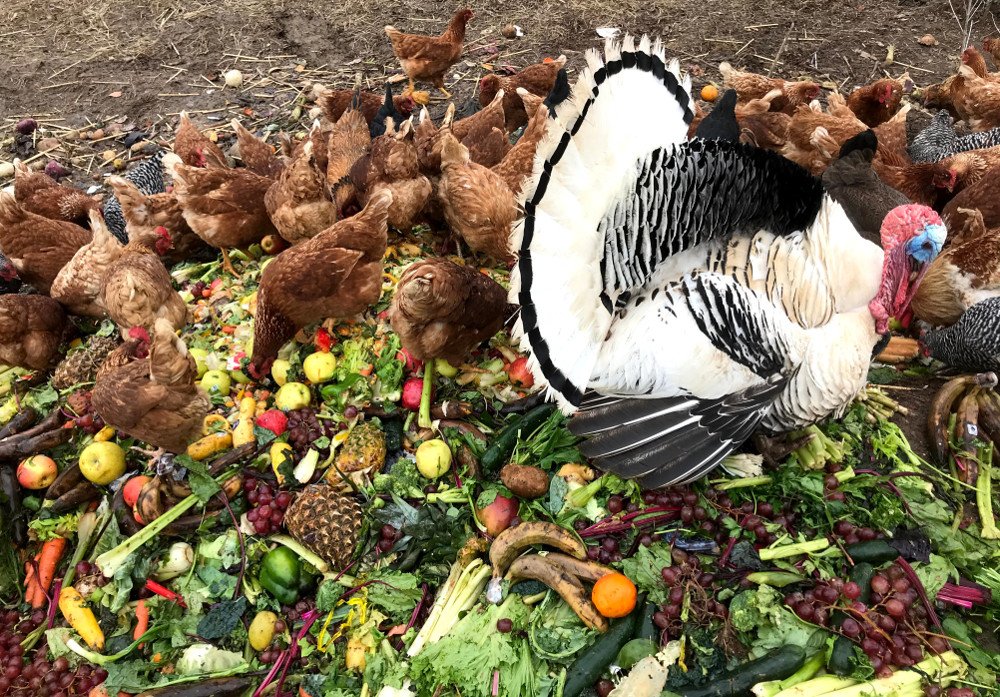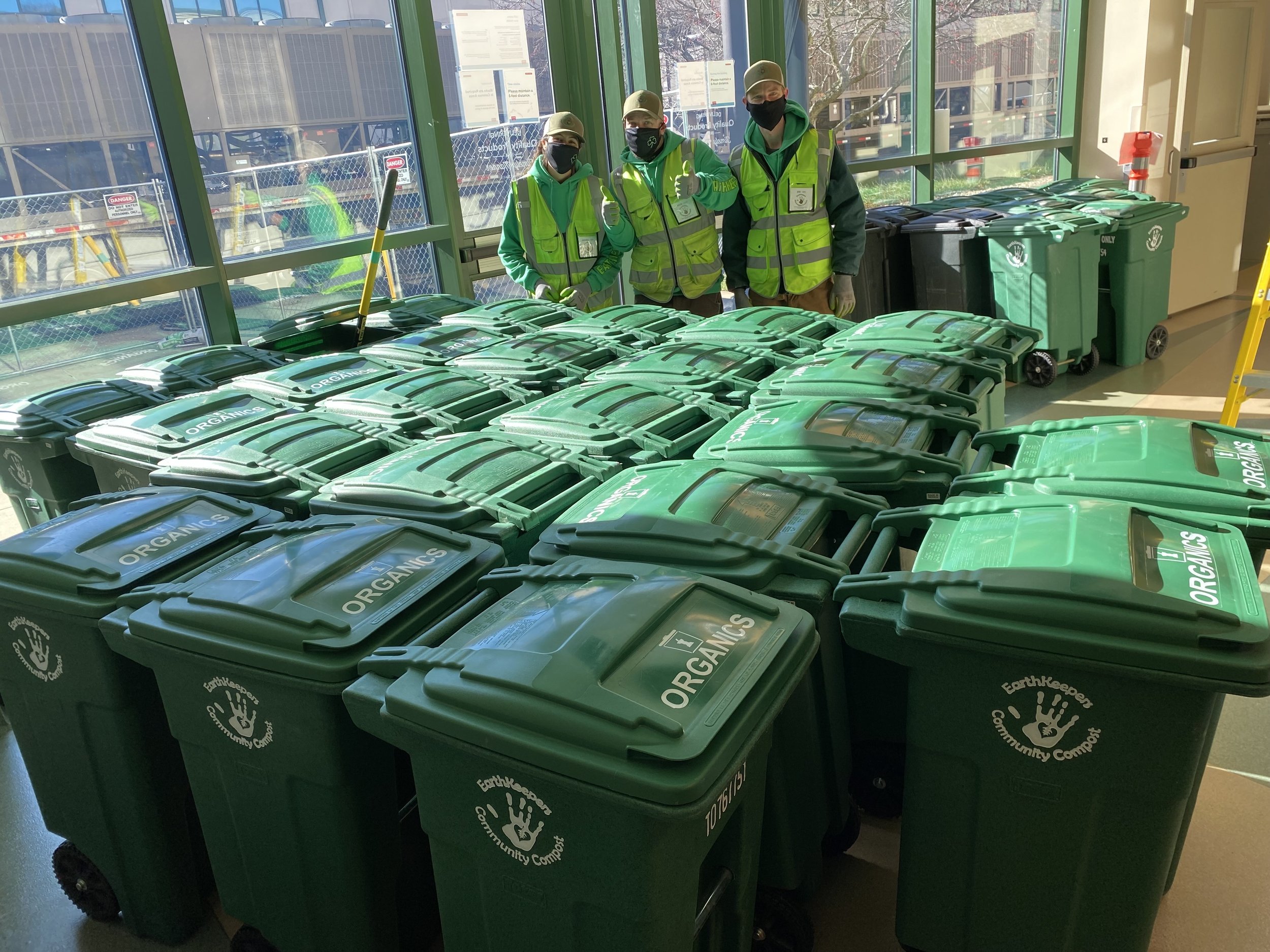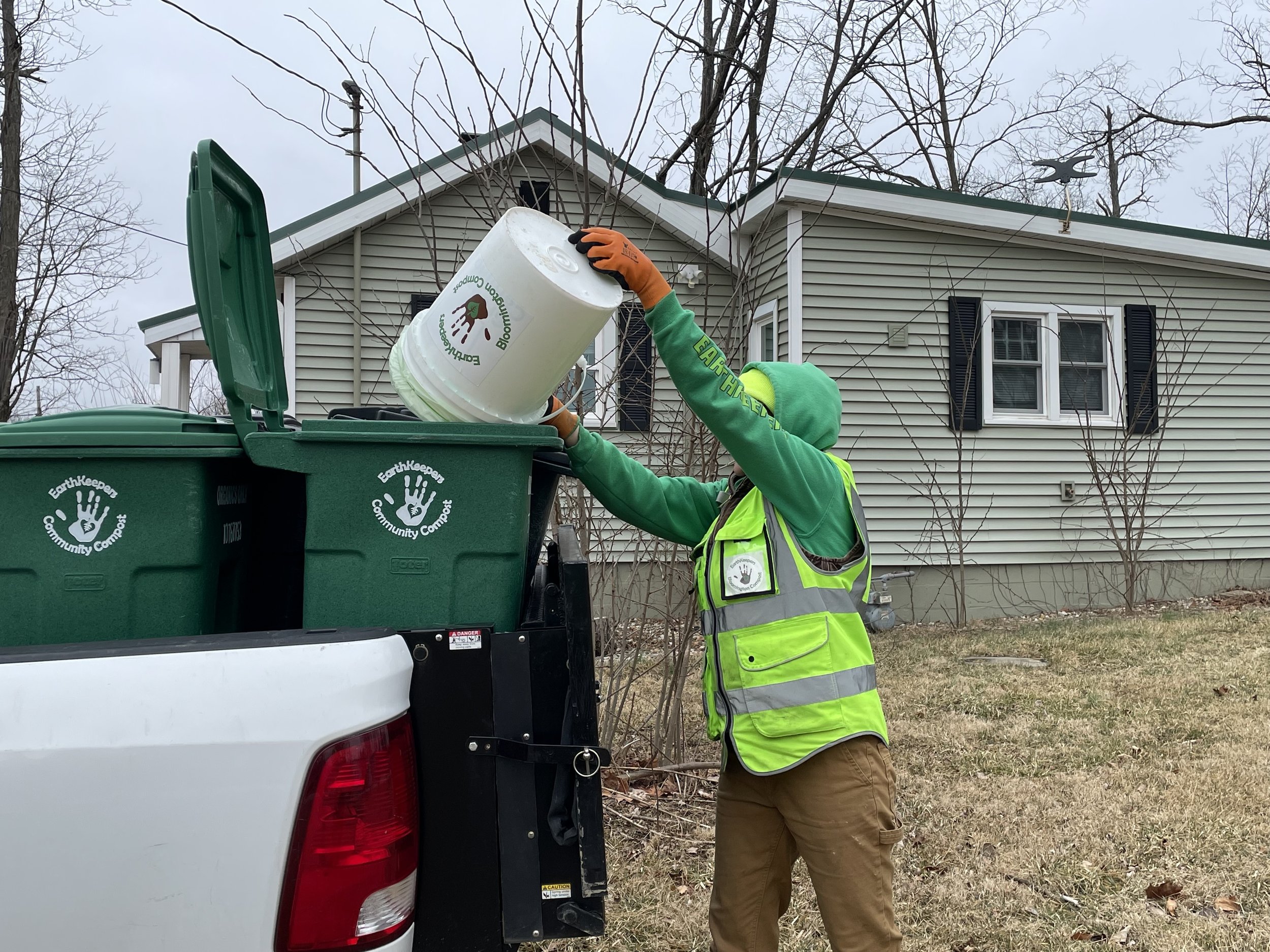
On April 22nd, 2023 (EarthDay!), we began charging 5¢ per paper bag.
All of the proceeds are donated to the current Positive Change recipient. Paper bags are free to anyone using an EBT card.
What does this mean for you at checkout?
If you brought your own bag, please let the cashier know that you have your own bag(s).
If you didn't bring a bag(s), please place as many paper/reusable bags (from the bag display by each register) you need on the counter so they can be added to your purchase.
We started a little bag share program at our stores!
Here’s how it works:
If you forgot a bag and don’t want to use a paper bag ($.05 charge for each bag that goes to the current Positive Change recipient — paper bags are free to anyone using an EBT card), you can take one of the bags in the wire basket labeled “Take a Bag or Leave a Bag!” Feel free to return it or keep it!
If you have extra reusable bags that you’d like to share with other shoppers, leave them in the wire basket labeled “Take a Bag or Leave a Bag!”
🚨Please do not put paper or plastic bags in these baskets. Also, if the basket is full, please do not add anymore bags.
🌱Thank you for making every day Earth Day with us!
Help our environment while you shop & be rewarded for it!
Be sure to pick up one of our Bloomingfoods for Earth rewards cards - available by our registers! You do not need to be an owner-member to use this rewards card.
✅ Use a reusable bag = 1 stamp
✅ Reuse a cardboard box = 1 stamp
✅ Refill a container/bulk bag = 1 stamp
✅ Pay with cash = 1 stamp
✅ Walk, bike, or ride the bus to our store = 1 stamp
✅ Purchase a local item
30 stamps = $5 off (exclusions apply-see the back of the card for more details)
During checkout, let the cashier know what you are receiving up to 5 stamps for.
Buying in bulk makes for a lovely day & planet! 💚
So what’s so lovely about it?
✅ You will reduce your packaging and food waste.
✅ There are less cumulative transportation miles for bulk products!
✅ Generally it is cheaper!
✅ You can buy as little or as much as you want or need!
✅ Your food will stay fresher since you buy the amount you need.
✅ It will help you form a habit of shopping consciously and improve your zero waste habits.
✅ It’s always a fun experience to pick out your favorite bulk items!
Not sure how to buy bulk items? It’s super easy!
Take your reusable container or reusable bulk bag to a cashier and have them give you the tare weight of your container or reusable bag. Grab some masking tape from our bulk section, place it on your container and use a pencil to write the tare weight on the the tape. Our reusable branded bulk bags already have the tare weight on them so you can skip this step if you’re using one.
Fill your reusable container or reusable bulk bag with the bulk item you want and write the PLU# for that product on the same piece of tape; the PLU # can be found on the label where you got the bulk items from. ⚠️ Each item needs to be in a separate container or bulk bag.
Take your filled container or reusable bulk bag with the rest of your groceries to the checkout and the cashier will take care of the rest!
Return your Rhodes Family Farm egg cartons so that they can be reused!
Every week, Rhodes picks up returned egg cartons so that they can be reused after being inspected.
Rhodes Family Farm is located 7 miles southwest of Bloomfield in Greene County. Luke and Arlene Rhodes started farming there in 1986, and with 6 sons and 1 daughter who help on the farm, it is truly a "family farm." They do not use antibiotics, hormones, pesticides, fungicides, or GMO products on their farm. To learn more about Rhodes Family Farm, please visit www.rhodesfamilyfarm.grazecart.com.
Shopping local benefits our environment!
Once upon a time, ALL shopping and buying was local, resulting in tight sustainable communities where citizens supported their local small businesses, restaurants and farms. Our great grandparents ate the fruits that were produced on trees in their own state and filled the table with vegetables grown, if not in their own garden, in their own town. Today, our world has become so global and interconnected, and we have the ability to get anything anywhere, but it also comes at a price. Our vast distribution network of trucks, trains and airlines is polluting the environment. Our local businesses struggle to compete with national chains. There is no better time than NOW to shift the tide and buy more local products from your friends and neighbors! *Source: Green Business Bureau
Buying local, organic, and fair trade all share a similar vision — getting you, as a consumer and/or producer, to think not just about what you purchase and produce, but how products come to us.
These shared values include a desire to:
Implement sustainable farming practices.
Avoid large corporate intermediaries.
Know who grew the food.
A connectedness or transparency.
Buy directly, or at least more directly to get more of the purchase price back to the producer.
Shop for these little labels that are making a big difference toward a more sustainable future for all!
Little Labels, Big Impact!
If you’re like many shoppers, you want to know how the food you buy affects people and the planet, including how it was grown, harvested and produced. You seek out greater transparency from stores like ours, as well as from your favorite brands and the companies who produce your food.
We, too, believe you have a right to know if what you’re buying aligns with your values! That’s where third-party certifications play a big role. When you see the little labels by independent third-party certifiers (Marine Stewardship Counsil Certified, Non-GMO Project Verified, Fair Trade America) on your food, you know that product underwent a rigorous evaluation to ensure it met a set of strict standards.
Fairtrade America, Marine Stewardship Council, and the Non-GMO Project are all nonprofit organizations driven by their collective mission to change how food is harvested or made in order to better serve people and the planet. Fairtrade has been operating internationally since 1989, MSC’s sustainable fishing standard has been in effect since 1998, and Non-GMO Project has been verifying products since 2010. The nonprofits publish their Standards on their websites to give shoppers full transparency. Brands both large and small showcase this compliance by including the Fairtrade, MSC, or Non-GMO Project labels on their packaging. This further gives shoppers assurance that it’s not a fad but a sustainability tool used by brands to have a true, positive impact.
Waste not, my friend. Waste not!
Every year, billions of pounds of good food go to waste in the U.S. due to not being sure of the quality or safety of items in our homes. USDA estimates that 21% of the available food in the U.S. goes uneaten at the consumer level. Food waste is the single largest component going into municipal landfills and it quickly generates methane, a greenhouse gas just like carbon dioxide that it is about 20 times more effective in trapping heat, which leads to global warming. As a result, landfills are the third largest source of methane in the United States. *Source: USDA, www.foodsafety.gov/keep-food-safe/foodkeeper-app
Check out the FoodKeeper application to help you understand how different storing methods affect a product’s shelf life. This should help you maximize the storage life of foods and beverages in your home. In addition, the application can remind you to use items before they are likely to spoil.
Please don’t be a wishful recycler. Be sure to recycle correctly when using recycling bins at our stores!
To learn more about Rumpke, visit www.rumpke.com.
Unfortunately, the
self-serve drop-off for compost through EarthKeepers will be coming to an end the last week of May, 2023.
We will keep you in the loop as Earthkeepers moves forward with new ideas to create a more resilient composting system for Bloomington.
Facts:
By weight, our food scraps are the single largest component of the waste stream. On average, Americans throw out 20 pounds of food per person every month, the equivalent of $165 billion annually. Here in Monroe County, a recent waste composition study found that nearly 40% of the waste stream is potentially compostable—including a whopping 26.5 percent food waste. All that food waste currently gets trucked more than 60 miles to a landfill in Terre Haute. We burn fossil fuels to produce and ship food products and then turn around and burn more to collect and dispose of them.
Once buried in landfills, food waste produces 18 percent of our country’s methane, a greenhouse gas (GHG) with more than 25 times the global warming potential of carbon dioxide. If food waste were a country, it would rank third after the U.S. and China for GHG emissions, according to a United Nations report. (Source: www.earthkeeperscompost.com/faq)
For more information about EarthKeepers, visit www.earthkeeperscompost.com.
Additional Resources
Biking:
Biking in Bloomington – City of Bloomington
Cycling in Bloomington – Visit Bloomington
Smart Cycling Videos (English & Spanish)
Kindle Edition of Smart Cycling Quick Guide (English Edition)
Composting:
Learn more about how to compost at www.ilsr.org/composting
